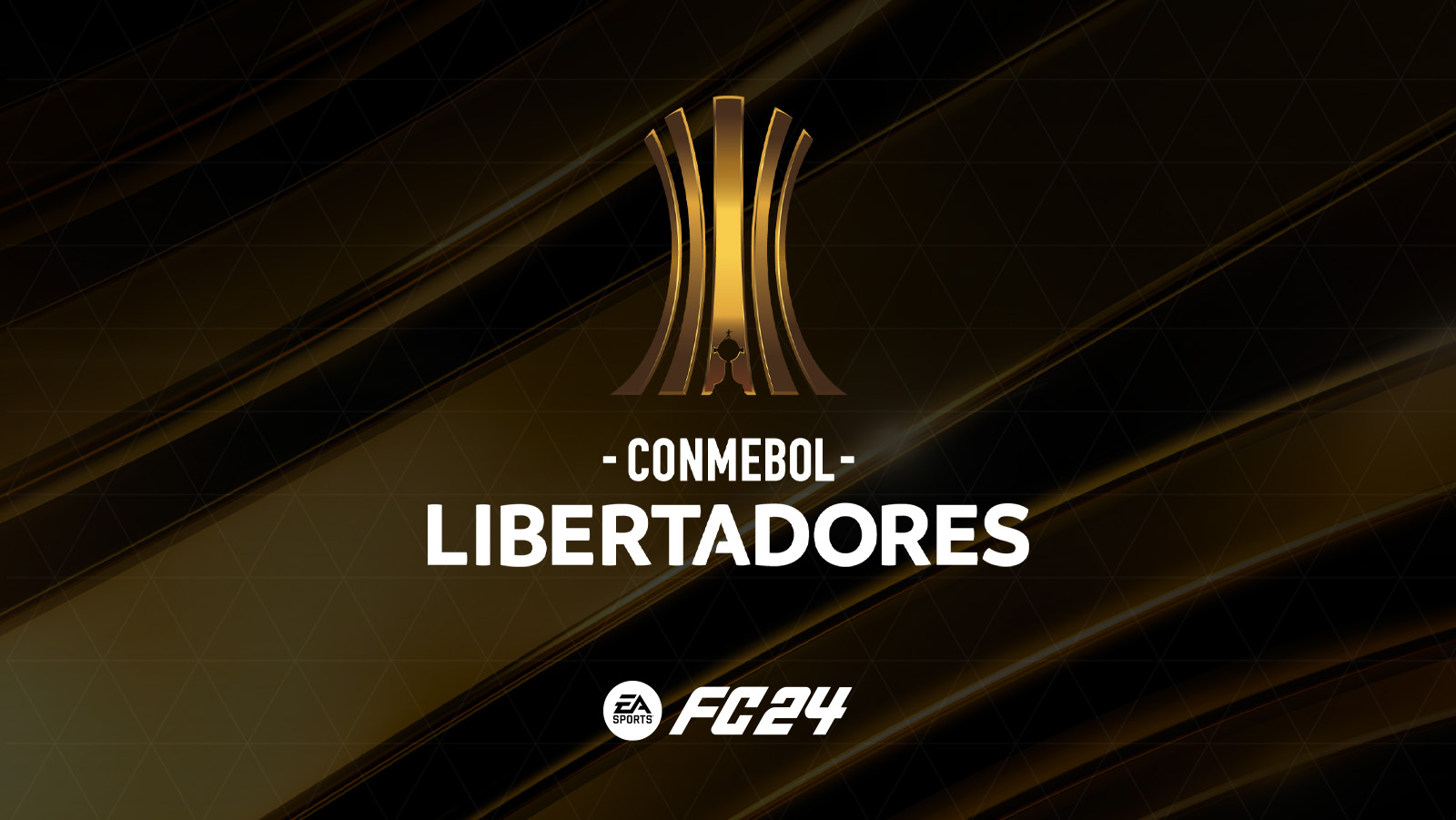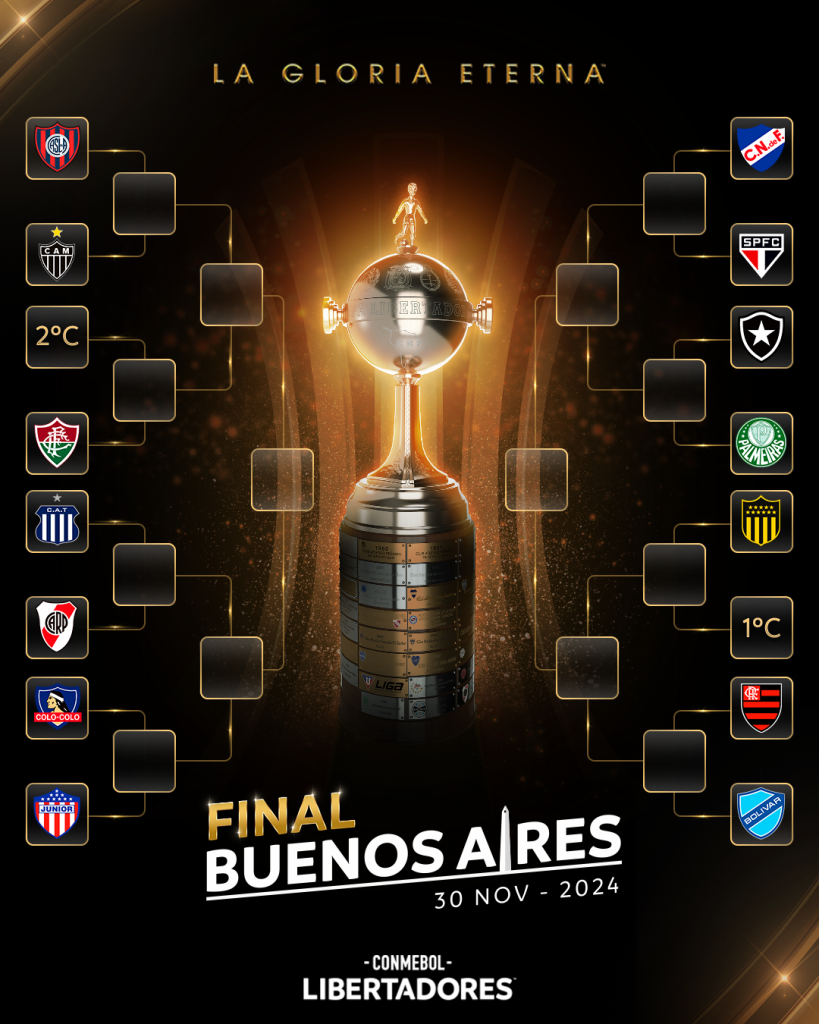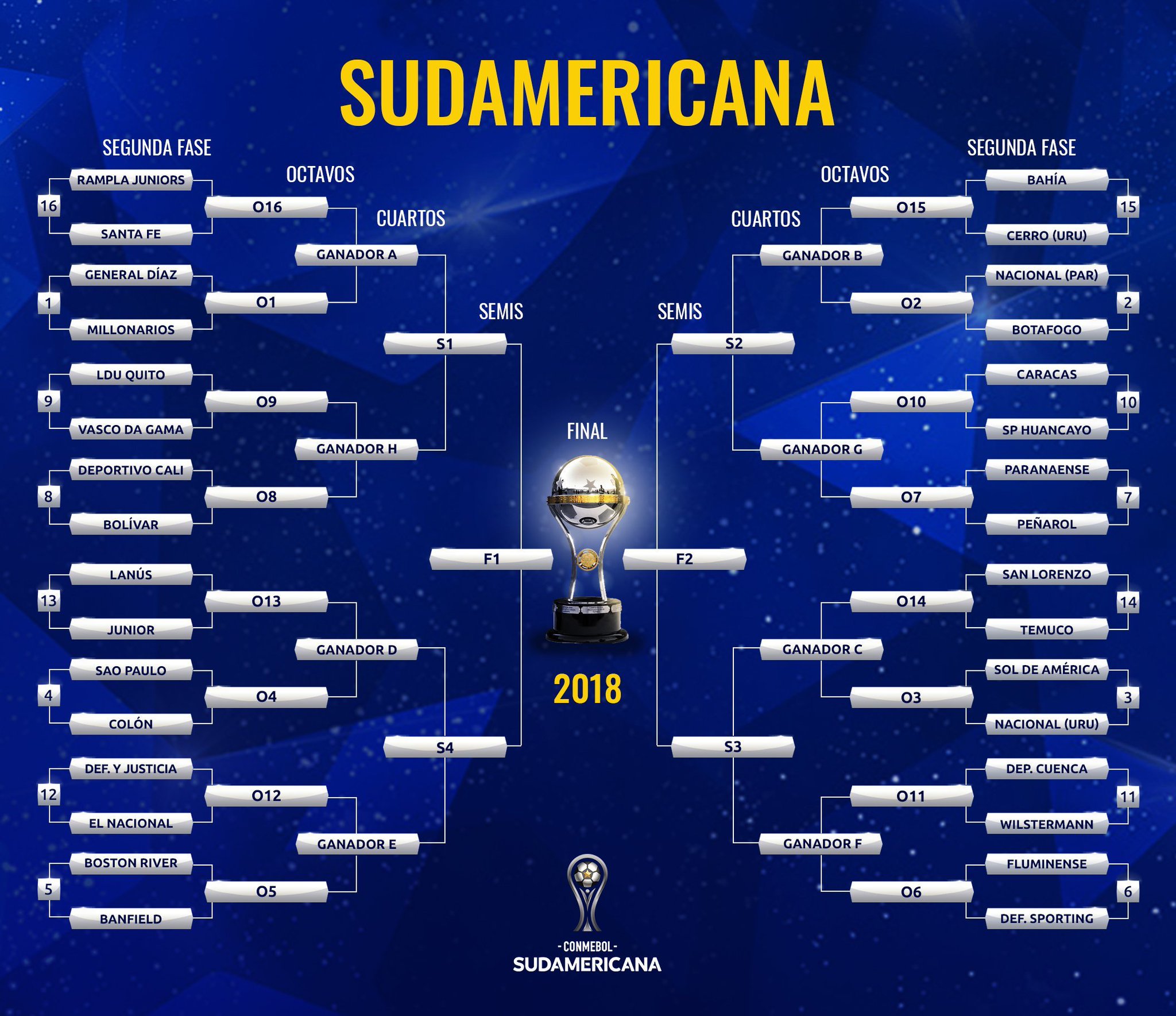The Conmebol Libertadores is a tournament that captures the hearts of millions of football fans across the globe. It stands as the most prestigious club competition in South America, often compared to UEFA's Champions League. Since its inception, this tournament has produced some of the most thrilling matches, legendary players, and unforgettable moments in football history.
For football enthusiasts, the Libertadores is more than just a competition. It is a celebration of South American football culture, showcasing the unique style of play that distinguishes the continent from others. From the vibrant atmosphere of packed stadiums to the skillful performances on the pitch, the tournament encapsulates the essence of passion and dedication.
This article delves deep into the world of the Conmebol Libertadores, exploring its history, format, notable winners, and its significance in the global football landscape. Whether you're a die-hard fan or someone new to the sport, this comprehensive guide will provide valuable insights into what makes the Libertadores so special.
Read also:Sally Dangelo A Rising Star In The World Of Entertainment
Table of Contents
- History of the Conmebol Libertadores
- Competition Format
- Notable Winners and Achievements
- Key Players Who Shaped the Tournament
- Cultural Impact on South America
- Economic Significance
- Key Statistics and Records
- Global Reach and Recognition
- Future Direction of the Tournament
- Conclusion
History of the Conmebol Libertadores
Founded in 1960, the Conmebol Libertadores was established to crown the best football club in South America. Originally known as the "Copa Libertadores de América," the tournament was initiated by the South American Football Confederation (CONMEBOL). Its primary objective was to promote football across the continent and provide a platform for clubs to compete at an elite level.
Over the years, the tournament has undergone several changes, both in terms of format and participation. Initially, it featured a smaller number of teams, but as the popularity grew, so did the number of participants. Today, the Libertadores includes clubs from all CONMEBOL member countries, making it one of the most competitive club competitions globally.
Evolution of the Tournament
The evolution of the Libertadores can be traced through various phases:
- 1960-1990: The early years focused on a knockout-style format with limited participants.
- 1991-2000: Expansion of the tournament with more teams and the introduction of group stages.
- 2001-Present: Modernization of the format, including increased prize money and international broadcasting rights.
Competition Format
The format of the Conmebol Libertadores has evolved to accommodate the growing number of participants while maintaining its competitive edge. Currently, the tournament consists of several stages:
- Preliminary Stage: Teams compete in a knockout format to qualify for the group stage.
- Group Stage: Thirty-two teams are divided into eight groups, with the top two teams from each group advancing to the knockout rounds.
- Knockout Rounds: From the round of 16 onwards, teams compete in two-legged ties until the final.
Qualification Criteria
To qualify for the Libertadores, clubs must finish in top positions in their respective domestic leagues. The exact number of qualifying spots varies depending on the country's performance in CONMEBOL's coefficient rankings.
Notable Winners and Achievements
The Conmebol Libertadores has seen its fair share of dominant teams and legendary victories. Some of the most successful clubs include:
Read also:Porscha Coleman Rising Star In The Entertainment Industry
- Independiente (Argentina): Holds the record for the most titles with seven victories.
- Peñarol (Uruguay): Won the tournament five times, showcasing their dominance in the early years.
- Corinthians (Brazil): Known for their thrilling victories and strong fan base.
Recent Achievements
In recent years, Brazilian clubs have dominated the tournament, with teams like Flamengo and Palmeiras lifting the trophy. These victories have highlighted Brazil's growing influence in South American football.
Key Players Who Shaped the Tournament
Throughout its history, the Libertadores has been graced by some of the greatest footballers of all time. Players like Diego Maradona, Carlos Tevez, and Gabriel Batistuta have left an indelible mark on the tournament. Their performances have not only helped their teams achieve glory but have also inspired future generations of players.
Iconic Moments
Some of the most iconic moments in the Libertadores include:
- Diego Maradona's debut with Argentinos Juniors in the 1980s.
- Carlos Tevez's decisive goals for Corinthians in their 2012 triumph.
- Gabriel Batistuta's record-breaking goal-scoring feats for River Plate.
Cultural Impact on South America
The Conmebol Libertadores is more than just a football tournament; it is a cultural phenomenon. It brings together fans from different countries, fostering a sense of unity and shared passion. The tournament also plays a crucial role in promoting South American culture globally, showcasing the continent's vibrant traditions and values.
Role in Community Engagement
Many clubs participating in the Libertadores actively engage with their communities through various social initiatives. These efforts help bridge gaps and promote social cohesion, making the tournament a force for positive change.
Economic Significance
Economically, the Conmebol Libertadores has a significant impact on participating clubs and the continent as a whole. The tournament generates substantial revenue through broadcasting rights, sponsorships, and ticket sales. This financial influx helps clubs invest in infrastructure, player development, and community programs.
Investment in Youth Academies
Many clubs use the revenue generated from the Libertadores to invest in youth academies, nurturing the next generation of football talent. This investment ensures the sustainability of the sport and maintains the high level of competition.
Key Statistics and Records
The Conmebol Libertadores is filled with fascinating statistics and records. Some of the most notable include:
- Most titles won by a single club: Independiente (7).
- Highest number of goals scored by a player: José Sand (31 goals).
- Longest unbeaten streak: Peñarol (35 matches).
Record-Breaking Matches
Certain matches in the Libertadores have set records that are unlikely to be broken anytime soon. These matches often feature extraordinary performances from players and teams, leaving a lasting legacy in the tournament's history.
Global Reach and Recognition
The Conmebol Libertadores has gained significant global recognition, attracting viewers from all over the world. Broadcasters like ESPN and Fox Sports have played a pivotal role in increasing the tournament's visibility. This global reach has helped elevate the status of South American football on the international stage.
Partnerships and Collaborations
The tournament has formed partnerships with major brands and organizations, further enhancing its global appeal. These collaborations have enabled the Libertadores to expand its reach and engage with new audiences.
Future Direction of the Tournament
Looking ahead, the Conmebol Libertadores aims to continue its growth and development. Plans include expanding the number of participating teams, increasing prize money, and enhancing the overall experience for fans. The tournament also seeks to leverage technology to improve broadcasting quality and engage with digital audiences.
Innovation in Broadcasting
With the rise of digital platforms, the Libertadores is exploring new ways to deliver content to fans. This includes live streaming, virtual reality experiences, and interactive features that enhance the viewing experience.
Conclusion
The Conmebol Libertadores remains a cornerstone of South American football, showcasing the continent's rich footballing heritage and talent. From its humble beginnings to its current status as a global phenomenon, the tournament has consistently delivered thrilling matches and unforgettable moments. As it continues to evolve, the Libertadores will undoubtedly remain a key player in the world of football.
We invite you to share your thoughts and experiences in the comments section below. Whether you're a long-time fan or new to the tournament, your input is valuable. Additionally, explore our other articles to deepen your understanding of football and its global impact.


